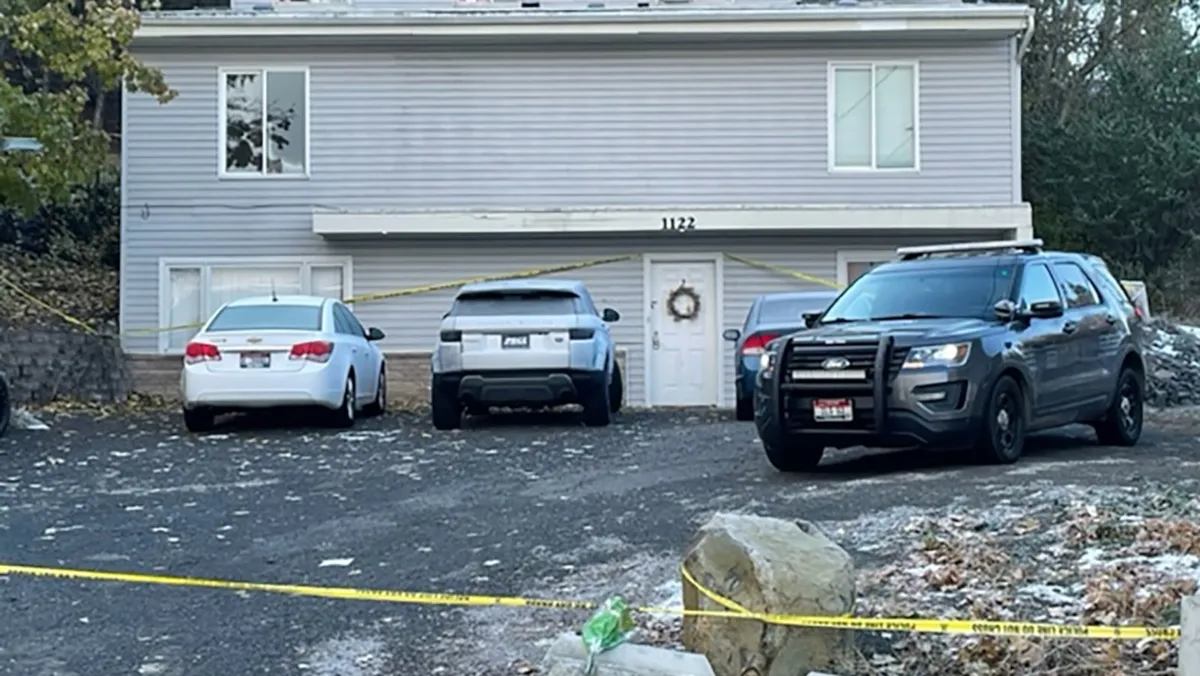
On the tragic night of November 13, 2022, four college students from the University of Idaho were brutally stabbed to death in their off-campus home on King Road in Moscow, Idaho. Recent court documents, made public on Thursday, reveal frantic attempts by two surviving roommates to contact their friends during the harrowing event. These text messages have provided valuable insights into the timeline of the events leading up to and following the horrific incident.
The court filings, submitted by prosecutors in the case against suspect Bryan Kohberger, detail the movements of the victims—Kaylee Goncalves, Xana Kernodle, Ethan Chapin, and Madison Mogen—leading up to the tragedy. The four students reportedly returned to their residence at approximately 1:45 a.m. One of the surviving roommates messaged an Uber driver at 2:10 a.m. to pick them up from a local bar, while the other roommate was still awake, sending text messages.
At 4 a.m., Kernodle received a DoorDash order, and one roommate expressed that she thought she heard Goncalves playing with her dog. Shortly after, the same roommate reported hearing someone—believed to be Goncalves—say, "there's someone here." This alarming statement was followed by distressing sounds captured by a nearby security camera, which recorded barking and distorted audio suggesting voices or a whimper, followed by a loud thud.
As the clock approached 4:30 a.m., both surviving roommates exchanged increasingly anxious text messages. One of them, identified in court documents as D.M., texted her friend B.F. in a state of confusion and fear, stating, "No one is answering." D.M. expressed concern over Kaylee's well-being, saying, "I'm really confused right now. Kaylee, what's going on?" The text exchanges indicated rising panic, with D.M. referring to a figure resembling someone in a ski mask, prompting B.F. to urge her to come to her room and to "run." These chilling messages offer a glimpse into the fear and uncertainty that filled the King Road home during those critical moments.
According to earlier court documents, one of the surviving roommates recounted looking out of her bedroom door but seeing nothing alarming. However, upon hearing what she believed to be crying from Kernodle's room, she opened her door again, only to hear a male voice reassuring someone, saying, "It's OK, I'm going to help you." The roommate then spotted a man dressed in black and wearing a mask, who walked past her in a state of shock.
Describing the intruder, the roommate noted he was approximately 5-foot-10, not overly muscular but athletically built, with bushy eyebrows. This encounter has become a pivotal part of the investigation, and both surviving roommates are expected to testify at the upcoming capital murder trial.
Amid the chaos, a 911 call was placed at 11:58 a.m.—nearly seven hours after the intruder was seen. The call followed a series of unanswered texts to the victims’ phones and communication between the surviving roommates and their families. The dispatcher was informed that one of the roommates was unresponsive and that a man had been seen in their home the previous night. The urgency of the situation was clear as the operator asked, "Is she breathing?" to which the answer was a somber "No." The chilling statement, "I think we have a homicide," was also recorded during the call.
Bryan Kohberger was arrested in December 2022 after a six-week manhunt. He faces four counts of first-degree murder and one count of burglary, with his trial scheduled to begin in August 2023. Kohberger has pleaded not guilty to the charges, and if convicted, he may face the death penalty in Idaho.
The heartbreaking events surrounding the murders of the four University of Idaho students have left a profound impact on the community. As the legal proceedings unfold, the details revealed in the court documents continue to shed light on that fateful night, offering a deeper understanding of the tragic loss of these young lives.